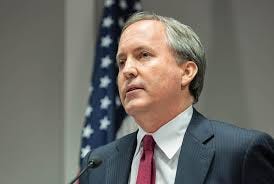Texas AG Ken Paxton Launches Investigation into 33 Noncitizens Allegedly Voting in 2024 Election
On June 17, 2025, Texas Attorney General Ken Paxton announced a probe into 33 individuals suspected of illegally voting as noncitizens in the November 2024 general election. The investigation, sparked by data from the U.S. Citizenship and Immigration Services’ Systematic Alien Verification for Entitlements (SAVE) database, marks a significant step in Texas’ efforts to address election integrity concerns. The case was referred to Paxton’s office by Texas Secretary of State Jane Nelson, who recently gained access to the SAVE database to verify voter eligibility.
The Investigation: Identifying Potential Noncitizen Voters
The investigation centers on 33 individuals flagged as potential noncitizens who cast ballots in the 2024 election, which saw approximately 11.3 million Texans vote. This number represents a tiny fraction of the total ballots cast, but Paxton’s office is treating the matter with urgency, citing the need to prevent noncitizen voting and maintain public trust in the electoral process.
The identification of these individuals was made possible through Texas’ access to the SAVE database, a federal tool managed by the U.S. Citizenship and Immigration Services (USCIS) under the Department of Homeland Security. The database allows states to verify immigration and citizenship status, aiding efforts to ensure only eligible U.S. citizens are registered to vote. In March 2025, an executive order from President Donald Trump mandated free access to the SAVE database for all states, enabling Texas to join a pilot program to enhance the database’s functionality.
Secretary of State Jane Nelson, whose office oversees voter registration and election administration, utilized the SAVE database to cross-check voter rolls. This process identified the 33 potential noncitizens, whose names were promptly referred to Paxton’s Election Integrity Unit for further investigation. Nelson emphasized the significance of the database, stating, “Gaining access to this database has been a game-changer. Not only have we been able to identify individuals who should not have voted in the last election, we have also been able to confirm naturalization of dozens more.”
A Push for Election Integrity
Paxton’s investigation aligns with a Republican-led effort in Texas to strengthen voter eligibility requirements and combat perceived threats to election integrity. Noncitizen voting, though rare, has been a focal point for Texas Republicans, who argue that even isolated cases undermine public confidence in elections. Federal and state laws, including the Texas Election Code, explicitly prohibit noncitizens from voting, requiring citizenship as a prerequisite for voter eligibility.
This probe follows earlier actions by Paxton. In August 2024, he launched an investigation into nonprofit organizations suspected of illegally registering noncitizens to vote outside Texas Department of Public Safety (DPS) driver’s license offices. Undercover operations by his Election Integrity Unit confirmed the presence of voter registration booths at these locations, raising questions about their motives, as citizens are already offered voter registration opportunities during DPS transactions.
Additionally, in October 2024, Paxton requested voter registration data from Nelson’s office for individuals without Texas-issued driver’s licenses or identification cards, aiming to cross-reference this data with federal records to identify potential noncitizen voters. His office also filed a lawsuit against the Biden administration, alleging that the federal government failed to provide timely citizenship data to assist Texas in verifying voter rolls.
This is not the first time Texas has scrutinized voter rolls for noncitizen activity. In 2019, the Secretary of State’s office claimed to have identified 95,000 potential noncitizen voters, asserting that over half had cast ballots. However, the effort unraveled when it was revealed that many flagged individuals were naturalized citizens, incorrectly identified due to outdated data. The state settled a related lawsuit by agreeing to revise its procedures, highlighting the risks of overreach in such investigations.
More recently, Governor Greg Abbott announced in August 2024 that Texas had removed 6,500 “potential” noncitizens from voter rolls. A joint investigation by Votebeat, The Texas Tribune, and ProPublica later found these numbers were inflated, with only 581 confirmed noncitizens removed over three years. The remaining individuals had been flagged for failing to respond to citizenship verification notices, which did not definitively prove noncitizenship. This revelation raised concerns about the potential disenfranchisement of eligible voters, particularly naturalized citizens.
Critics, including Democrats and voting rights advocates, argue that Paxton’s investigations risk intimidating eligible voters, especially in Hispanic communities. Gabriel Rosales, Texas state director for the League of United Latin American Citizens, described similar actions as “an act of intimidation” aimed at suppressing voter turnout. These concerns are amplified by Paxton’s history of pursuing election fraud cases that have often resulted in few convictions, as seen in a 2018 case against Leticia Sanchez, which was dismissed after years of legal battles.
The 33 cases referred to Paxton’s office will undergo a thorough investigation to determine whether these individuals knowingly violated state and federal voting laws. It remains unclear which counties the voters are from or how long they were registered. Paxton has vowed to prosecute any confirmed violations “to the fullest extent of the law,” emphasizing that noncitizen voting is a crime that undermines democratic processes.
Meanwhile, Texas Republicans are pushing for a constitutional amendment, set to appear on the November 2025 ballot, to reaffirm that only U.S. citizens can vote—a requirement already enshrined in state law. The move reflects ongoing efforts to address voter fraud concerns, despite evidence suggesting noncitizen voting is rare and has negligible impact on election outcomes.


